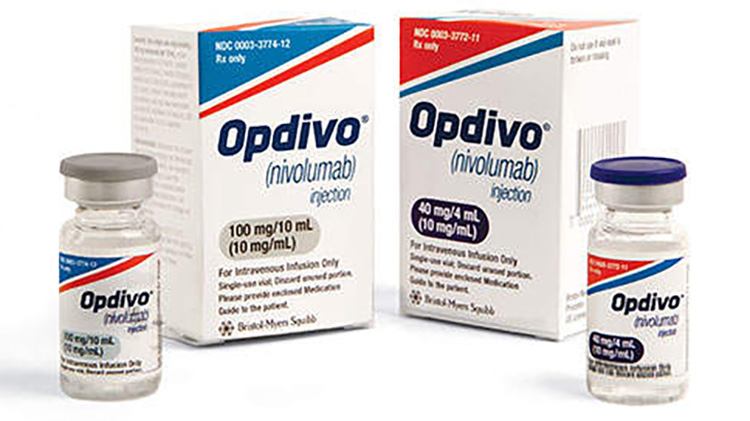Opdivo (Nivolumab) vs Keytruda (pembrolizumab)
Opdivo (Nivolumab) vs Keytruda (pembrolizumab)
Opdivo (nivolumab) and Keytruda (pembrolizumab) are both immune checkpoint inhibitors used in cancer therapy, specifically targeting the PD-1 pathway, which can help the immune system recognize and attack cancer cells. While both medications are used to treat a variety of cancers, including melanoma and non-small cell lung cancer, there are differences in their FDA-approved indications and dosing schedules that might influence a decision on which drug is appropriate for a specific patient. It is essential for a patient to consult with their oncologist to consider factors such as the type and stage of cancer, previous treatments, and individual health profile to determine the most suitable treatment option between Opdivo and Keytruda.
Difference between Opdivo and Keytruda
| Metric | Opdivo (Nivolumab) | Keytruda (pembrolizumab) |
|---|---|---|
| Generic name | Nivolumab | Pembrolizumab |
| Indications | Various types of cancer including melanoma, lung cancer, kidney cancer, bladder cancer, head and neck cancers, and others. | Various types of cancer including melanoma, lung cancer, head and neck cancer, Hodgkin lymphoma, and others. |
| Mechanism of action | PD-1 inhibitor that helps the immune system fight cancer cells. | PD-1 inhibitor that helps the immune system fight cancer cells. |
| Brand names | Opdivo | Keytruda |
| Administrative route | Intravenous infusion | Intravenous infusion |
| Side effects | Fatigue, rash, musculoskeletal pain, pruritus, diarrhea, nausea, and others. | Fatigue, cough, itching, rash, decreased appetite, constipation, joint pain, and others. |
| Contraindications | Known hypersensitivity to nivolumab or any of its excipients. | Known hypersensitivity to pembrolizumab or any of its excipients. |
| Drug class | Monoclonal antibody, Immune checkpoint inhibitor | Monoclonal antibody, Immune checkpoint inhibitor |
| Manufacturer | Bristol-Myers Squibb | Merck & Co. |
Efficacy
Introduction to Immune Checkpoint Inhibitors
Opdivo (nivolumab) and Keytruda (pembrolizumab) are part of a class of drugs known as immune checkpoint inhibitors, which have revolutionized the treatment of various cancers, including lung cancer. These medications work by blocking the interaction between PD-1, a protein on the surface of T-cells, and its ligands PD-L1 and PD-L2, which can be overexpressed by tumor cells. This blockade unleashes the T-cells to attack and destroy cancer cells. Both Opdivo and Keytruda have been shown to be effective in treating lung cancer, improving patient outcomes and survival rates.
Efficacy of Opdivo in Lung Cancer
Opdivo has been extensively studied in lung cancer and has demonstrated efficacy in both non-small cell lung cancer (NSCLC) and small cell lung cancer (SCLC). In NSCLC, Opdivo has been approved for patients with metastatic disease that has progressed on or after platinum-based chemotherapy. Clinical trials have shown that Opdivo can lead to longer overall survival compared to docetaxel, a standard chemotherapy drug. In SCLC, Opdivo has shown promise in extending survival in patients with disease progression after platinum-based chemotherapy and at least one other line of therapy.
Efficacy of Keytruda in Lung Cancer
Keytruda has also been effective in the treatment of NSCLC. It is approved for use in patients with metastatic NSCLC whose tumors express PD-L1, as determined by an FDA-approved test, and who have previously undergone chemotherapy. Keytruda has been shown to improve overall survival and progression-free survival in these patients. Additionally, Keytruda is approved as a first-line treatment for metastatic NSCLC in combination with chemotherapy, regardless of PD-L1 expression, based on studies demonstrating improved survival outcomes compared to chemotherapy alone.
Comparative Efficacy and Considerations
While both Opdivo and Keytruda have shown efficacy in treating lung cancer, the choice between them may depend on various factors, including PD-L1 expression, the specific type and stage of lung cancer, and prior treatments received. It is important to note that individual responses to these drugs can vary, and they can be associated with different side effect profiles. The decision to use Opdivo or Keytruda should be made by a healthcare provider in consultation with the patient, taking into account the most current clinical trial data and the patient's overall health and treatment goals.
Regulatory Agency Approvals
Opdivo
-
European Medical Agency (EMA), European Union

-
Food and Drug Administration (FDA), USA

-
Health Canada

-
Pharmaceuticals and Medical Devices Agency (PMDA), Japan

-
Therapeutic Goods Administration (TGA), Australia

-
Medsafe (NZ)

Keytruda
-
European Medical Agency (EMA), European Union

-
Food and Drug Administration (FDA), USA

-
Health Canada

-
Therapeutic Goods Administration (TGA), Australia

-
Medsafe (NZ)

Access Opdivo or Keytruda today
If Opdivo or Keytruda are not approved or available in your country (e.g. due to supply issues), you can access them via Everyone.org.
How it works

Make an enquiry
Choose the medicine you want to buy, answer a couple of questions, and upload your prescription to speed things up. We’ll get back to you within 24 hours.


Make an enquiry
Choose the medicine you want to buy, answer a couple of questions, and upload your prescription to speed things up. We’ll get back to you within 24 hours.


Breeze through the paperwork
We'll guide you through the required documents for importing unapproved medicine, ensuring you have all the necessary information.


Get a personalized quote
We’ll prepare a quote for you, including medicine costs and any shipping, administrative, or import fees that may apply.


Receive your medicine
Accept the quote and we’ll handle the rest - sourcing and safely delivering your medicine.

Some text on this page has been automatically generated. Speak to your physician before you start a new treatment or medication.
Let's talk
If you have any questions, call us or send us a message through WhatsApp or email:
Contact us




